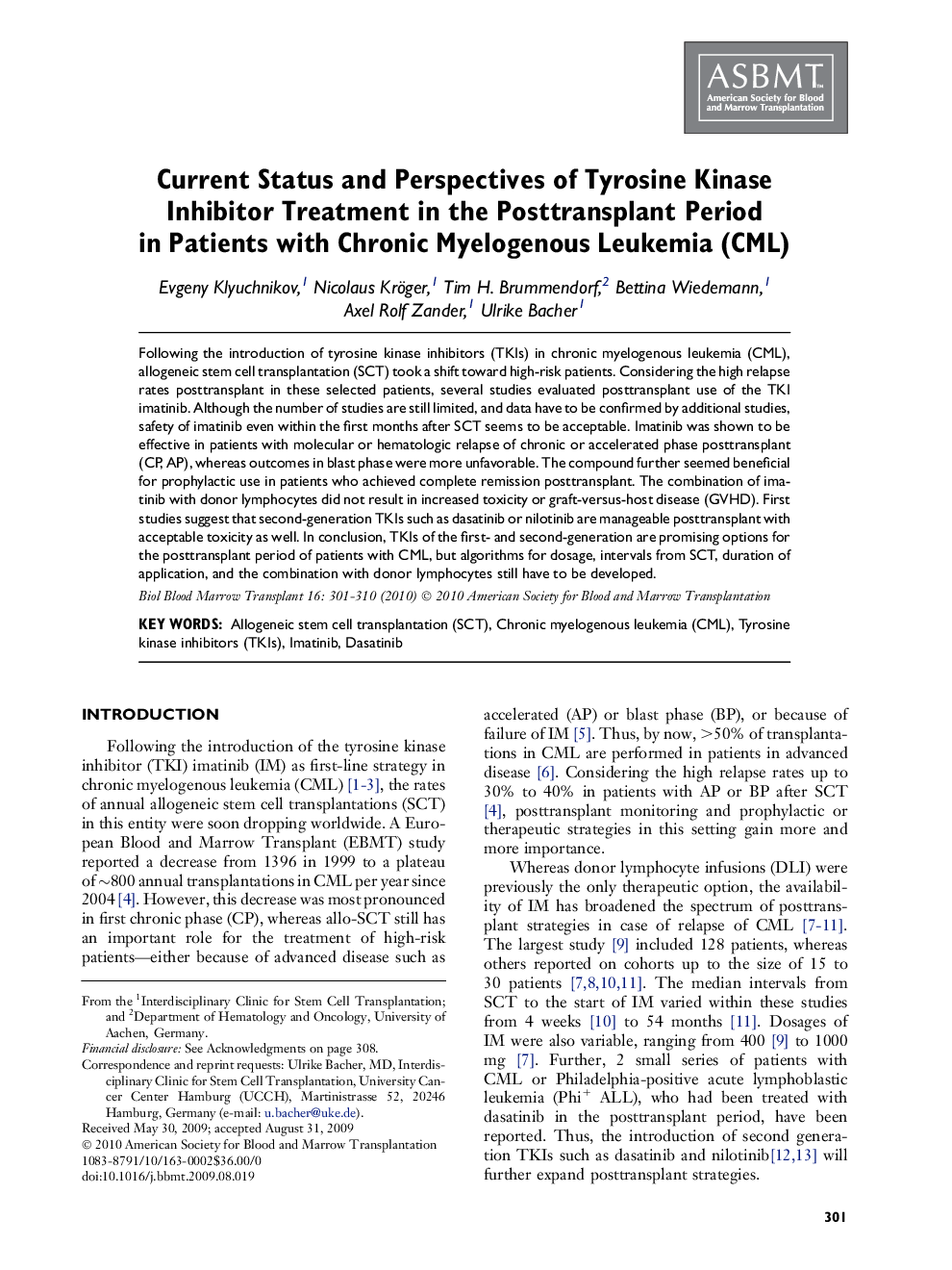| Article ID | Journal | Published Year | Pages | File Type |
|---|---|---|---|---|
| 2103956 | Biology of Blood and Marrow Transplantation | 2010 | 10 Pages |
Following the introduction of tyrosine kinase inhibitors (TKIs) in chronic myelogenous leukemia (CML), allogeneic stem cell transplantation (SCT) took a shift toward high-risk patients. Considering the high relapse rates posttransplant in these selected patients, several studies evaluated posttransplant use of the TKI imatinib. Although the number of studies are still limited, and data have to be confirmed by additional studies, safety of imatinib even within the first months after SCT seems to be acceptable. Imatinib was shown to be effective in patients with molecular or hematologic relapse of chronic or accelerated phase posttransplant (CP, AP), whereas outcomes in blast phase were more unfavorable. The compound further seemed beneficial for prophylactic use in patients who achieved complete remission posttransplant. The combination of imatinib with donor lymphocytes did not result in increased toxicity or graft-versus-host disease (GVHD). First studies suggest that second-generation TKIs such as dasatinib or nilotinib are manageable posttransplant with acceptable toxicity as well. In conclusion, TKIs of the first- and second-generation are promising options for the posttransplant period of patients with CML, but algorithms for dosage, intervals from SCT, duration of application, and the combination with donor lymphocytes still have to be developed.
